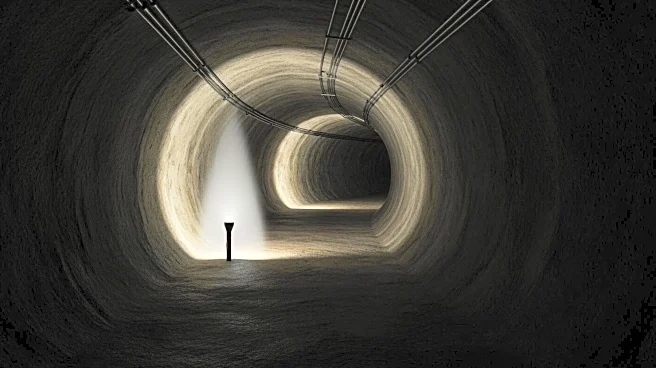What's Happening?
Prime Minister Benjamin Netanyahu is deliberating the possibility of allowing the evacuation of Hamas operatives trapped in Rafah tunnels, where the remains of fallen soldier Hadar Goldin are believed
to be held. The Israeli Defense Forces (IDF) are focused on eliminating terrorist operatives and infrastructure in these tunnels. The decision is being weighed in the context of retrieving the remains of deceased hostages and reinforcing Israel's hold on the Rafah corridor. However, Netanyahu has not made a final decision, and any evacuation would be contingent upon the return of Goldin's remains and would require the operatives to withdraw unarmed.
Why It's Important?
The situation in Rafah is significant as it highlights the ongoing conflict between Israel and Hamas, with potential implications for regional stability. The retrieval of Goldin's remains is a sensitive issue in Israel, symbolizing national pride and the government's commitment to its soldiers. The decision to evacuate Hamas operatives could impact Israel's military strategy and its relations with international stakeholders, including the U.S., which views the crisis as a potential model for disarming Hamas. The outcome could affect negotiations and influence public opinion within Israel.
What's Next?
If Netanyahu decides to proceed with the evacuation, it could lead to diplomatic negotiations and potential backlash from political leaders and the public. The IDF will continue its operations in the Rafah tunnels, and any decision will likely involve coordination with international bodies like the Red Cross. The situation remains fluid, with ongoing discussions about the conditions under which the evacuation might occur.











